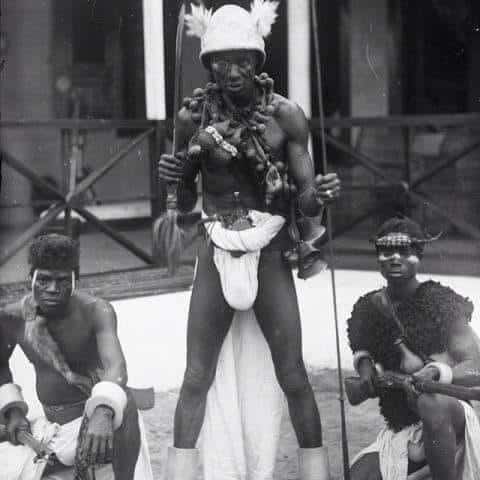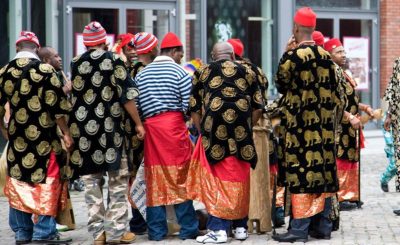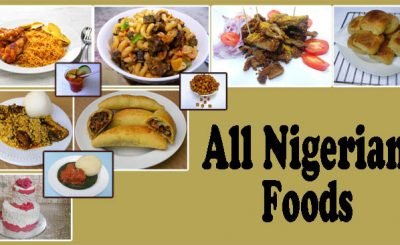Views: 27

THE EKUMEKU One of the Reasons The British Hates the Igbos! The British-Igbo War That Lasted For 31 YEARS:
The resolutions of the Berlin conference of 1884-1885, gave European nations the rights to lay claim to lands and resources in Africa.
Britain, who had engaged in the trade with coastal cities before and during the 19th century, made bold their intentions to covet resources and rule over indigenous nations all over Africa. Tribes resisted the British invaders, and this led to protracted wars. Many African tribes put up a great fight against the superior fire power of the suppressive British.
One of such tribes are the Igbo people of ancient Biafra, who are now one of the three major tribes in Nigeria.
The Ekuemeku Movement was the name of Igbo army, that held the British at bay and fought them for 31 years.
The Ekumeku movement consisted of a great number of attacks and uprising by the Anioma people of land, against the British, from 1893-1914.
The Ekumeku warriors were bound by a secrete oath, and meticulously utilized guerrilla tactics to attack the British Royal company, who were determined to penetrate Igbo land. The Ekumeku warriors were drawn from thousands of Anioma youth from all parts of Anioma land.
As the war rages on, the Ekumeku warriors defended their rights tom live peacefully without foreign interjection, while the British used heavy armaments. They destroyed homes, farms, and roads, by bombardment.
The British invaded Ndoni in 1870 and bombarded Onicha-Ado (Onicha) on November 2nd, 1897, from River Niger. This set the tempo for the rest of the war. The Royal Niger Company was commanded by Major Festing. They engaged the Anioma people of Ibusa in 1898.
The battle was so severe in 0wa/Okwunzu, in 1904, that the commander W.E.B Crawford requested for more arms from the British headquarters to crush the Western Anioma communities. The people of Owa again in 1906 engaged the British in a gruesome battle that consumed the life of the British commander S. O. Crewe.
Ogwashi-Ukwu faced the British on the 2nd of November 1909, and dealt a heavy blow to the British, who sustained many casualties, with the death of H. C. Chapman.
The Ekumeku became a formidable force in Igbo land and was a great source of nationalism for the Anioma people. It also served as a uniting cord that held together various towns who were independent of each other in the past. The Igbo were a republican people and each town had a leadership that was drawn from its oldest of men and families.
The war would have lasted longer, and possibly ended in a British defeat, if the Anioma people had equivalent fire power, and had more allies from other great Igbo kingdoms and towns. But even at that point, other tribes were facing the British on their own.
After almost 20 years of battle, decided to strike with great force. And in December of 1902, they sent a powerful expedition to Anioma kingdom. A great number of towns were destroyed. Civilians and soldiers alike were killed. And their leaders were arrested and imprisoned.
After this, the British were sure that they had suppressed the Ekumeku military cult, and that victory was theirs. The British officers boasted: “the Ekumeku and other secret societies have been completely broken.”
To their greatest surprise, two years later, in 1904, the fearless Ekumeku rose again. The Igbo are a proud and egalitarian people. They don’t go down that easily.
When the Ekumeku started their renewed campaign, they changed tactics, and abandoned the guerrilla warfare style of 1989, for individual defense of each town.
The last battle began in 1909. There was a succession dispute in Ogwashi-ukwu, and the British tried to remove the rightful king and enthrone someone else. One of the heirs to the throne, Nzekwe, the son of the last Obi, sensed the plot of the British and went to war with them to fight for his inheritance.
On November 2nd 1909, the British sent an expedition to Ogwashi-ukwu to capture him, but they failed. No amount of fire power at that point could defeat or quench the sympathy and dedication of the people towards the Ekumeku. In Asaba, the sympathy for the Ekumeku was so high that the people had a disposition to throw off the already British government in certain parts.
At the time, the acting Lieutenant-governor of the Southern provinces sent an agitated telegram to Lagos. It read: “Whole country is above are… is the state of rebellion.”
After this, reinforcements were sent from Lokoja, for another confrontation at Akegbe. The war raged on, till 1914, when the Ekumeku movement was defeated. That was the same year, the Northern and Southern protectorates of Nigeria were joined as one country.
Some of the heroes of that 31-year war included Dunwku Isus of Onicha-Olona, Nwabuzo Iyogolo of Ogwashi-Ukwu, Awuno Ugbo, Obi of Akumazi, Aggbambu Oshue of Igbuzo, the Idabor of Issele-Ukwu, Ochei Aghaeze of Onicha-olona, Abuzu of Idumuje-Unor, Idegwu Otokpoike of Ubulu-Ukwu. These men are remembered in Anioma land till date.
The Ekumeku war remains one of most bravely fought wars and campaign against British rule and plundering. It later inspired other rebellions around Africa, such as the Mau Mau of Kenya.
The Ekumeku have long been defeated, and that kingdom is now part of the greater Igbo land, in today’s Nigeria. But no matter how far we travel in time, history always remembers that a brave tribe defended their ancestry, heritage and legacy against the tyranny of Wilberforce.
Till date, in Nigeria, the Igbo remains one of the few tribes that still resist British rule over them and their resources. It can be said that these sentiments were at play when the British supplied weapons to the Hausa Fulanis in the Northern part and the Yorubas in the Western part of Nigeria to fight and kill the Igbos during the Nigeria Biafra War between 1967-1970 .
BRITISH EVILS AND ATROCITIES AGAINST IGBOS IS UNCOUNTABLE!!!
Source:Unknown.







You must be logged in to post a comment.